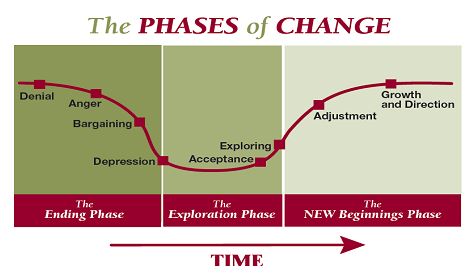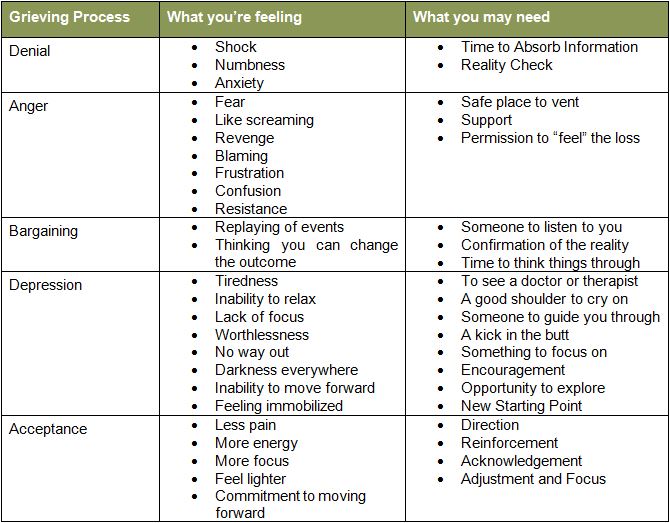Losing Your Job: Understanding The Phases of Change During Transition
First Things First
Losing a job ranks among the top 5 life situations that cause the most stress in our lives. The others include death of a loved one, divorce, moving and major illness. Dealing with just one of these situations can cause significant turmoil in our lives and we may feel it is unmanageable and yes to the point where we feel immobilized. By taking the time to understand then move through the process, you can turn the experience into a positive one.
Understanding the Phases of Change
There are different phases throughout the transition process and by being able to recognize each phase personally, you can determine what your needs are and what your coping mechanisms will be at each stage. In turn, you will be able to enlist help where needed or use your own personal drive and initiative to see you through. The three phases of change are The Ending Stage, The Exploration Stage and The New Beginning Stage.
The Ending Phase is the initial stage but it also marks the grieving process. Since losing a job ranks in the top 5 most stressful situations, it is normal to grieve the loss of a job. In this ending phase you are not only losing your job but possibly also work relationships, familiar surroundings, (your comfort zone), your daily routine and confidence. Within the grieving process[i] you must go through 5 phases including denial, anger, bargaining, depression and acceptance before you can move on to the next phase of Exploration.
How quickly you go through these phases is different for everyone but getting through them and into The Exploration phase is critical for your success. It is during the Ending phase that you need to focus and utilize all the resources available to you. The key to getting through this phase is being able to let go of the past because in doing so, you gain significant control of your future.
During the grieving process you may feel many different emotions, all of which are normal. Many of them along with what you may need to support yourself are identified here. While in this phase, the most important thing you can do for yourself is to take action regardless of how small it is, as any action will keep you moving forward.
The Exploration Phase may not be apparent right away and can be mixed in throughout your grieving process. In this phase you begin to look at new possibilities, whether they are in your career field or something totally new. This phase may feel very chaotic as options you hadn’t thought of or you had on the back burner may come to light. You may not do very much in your normal manner, as much of this phase can be in the form of thinking. In this hectic world we live in, we are so used to “doing” all the time, we don’t give ourselves enough space to think properly so the Exploration phase can be very different for you. This time is very useful for looking at and deciding your viable options.
The New Beginnings Phase occurs when you have accepted your loss, explored your options and you are able to move on productively. This can be an invigorating phase because if you felt dragged down during the ending phase and confused during the exploration phase, this phase gives you a new light, perspective, focus and clarity. You are now committed to moving forward in a new direction. Four important things change for the good at this point and they are renewed:
¨ Confidence
¨ Control
¨ Competence
¨ Comfort
This is the space we enjoy! Recognizing that all the phases and emotions in transition are quite normal will help you get to a productive and content place again.
[i] Kübler-Ross model of grieving




Leave a Reply